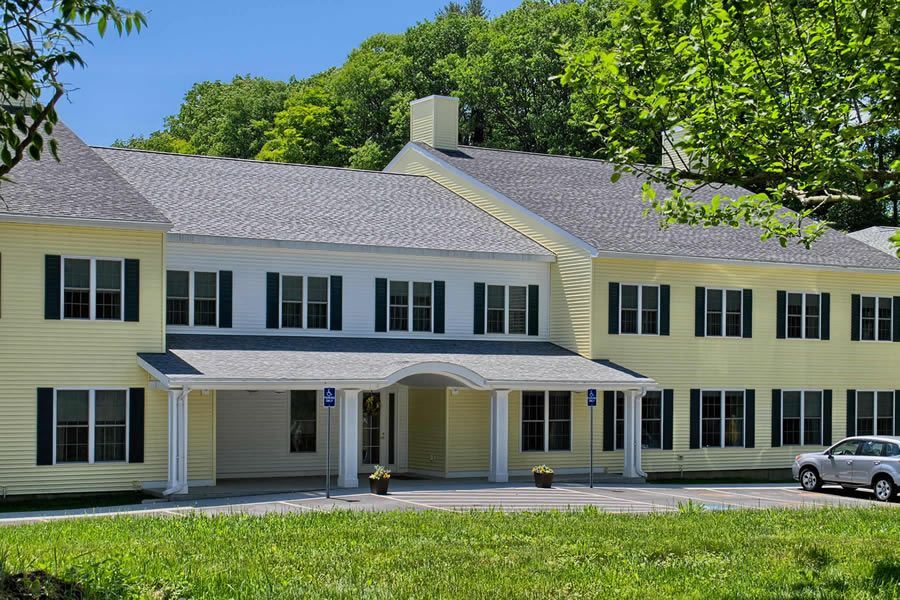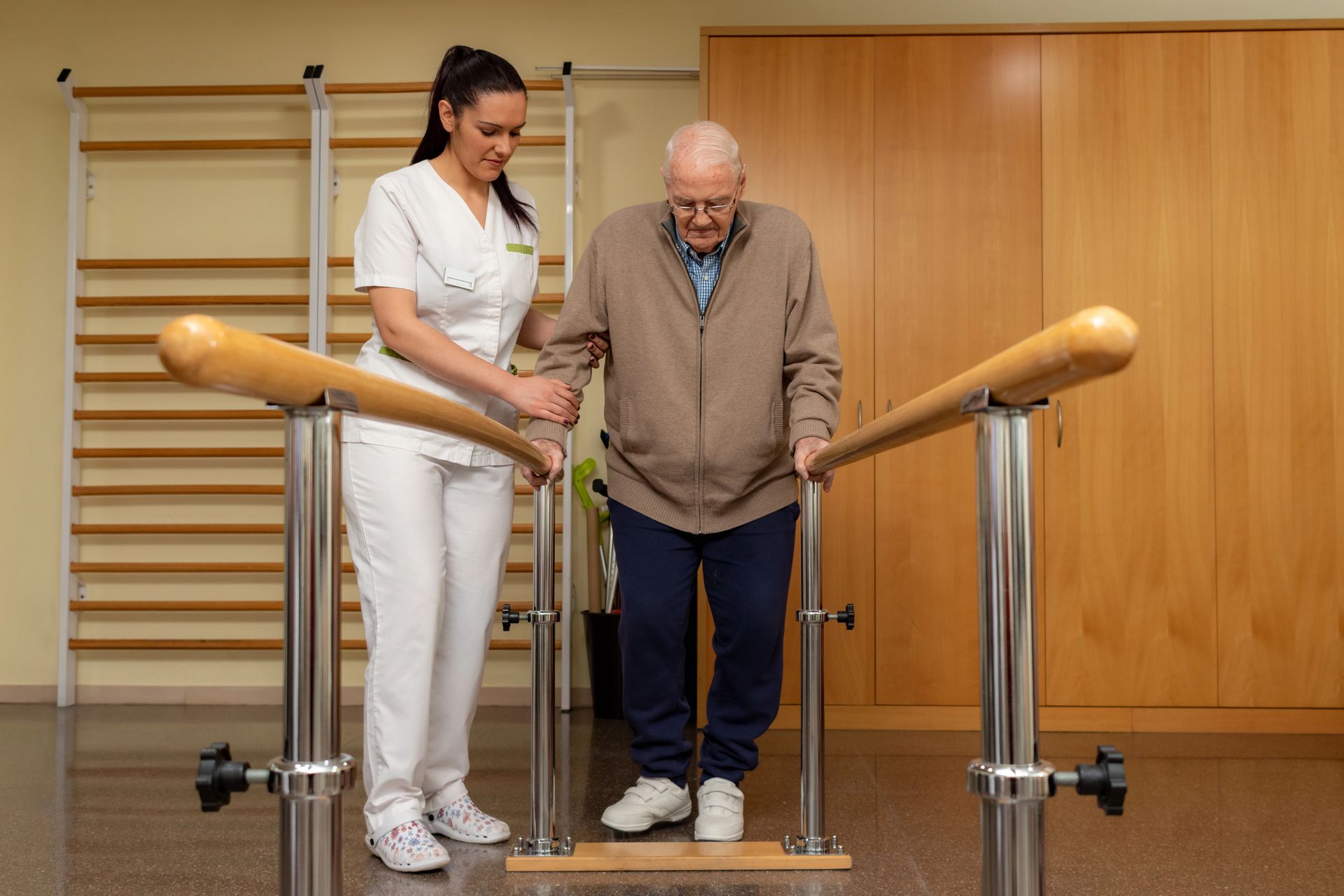Understanding and Managing Appetite Loss in Seniors: Causes and Solutions
Compassionate Senior Care at Cedar Hill Continuing Care Community
At Cedar Hill Continuing Care Community in Windsor, Vermont, we understand the delicate balance between aging gracefully and maintaining optimal health. Our person-centered approach ensures that every resident is treated as an individual, with a care plan tailored to their needs, preferences, and health goals. Care plans are often developed in collaboration with a family member, especially when residents have communication or cognitive challenges, to ensure their voices and needs are fully represented. Among the many challenges families face when considering assisted living or senior care, one common concern is appetite loss in older adults. This guide offers reassurance, practical advice, and a compassionate look at how Cedar Hill supports residents through all stages of aging, including addressing appetite changes. Cedar Hill also serves community dwelling older adults, addressing appetite loss and nutritional needs in both residential and community settings.

What Is Appetite Loss in Older Adults?
Appetite loss, or impaired appetite, sometimes called “the anorexia of aging,” affects up to 30% of older adults. Loss of appetite refers to a reduced desire to eat and is a significant concern in elderly health, as it can signal underlying medical or psychological issues. It’s not just a minor inconvenience—it can lead to serious health issues like weight loss, nutritional deficiencies, weakened immune systems, and even increased mortality. These conditions can result in worse health outcomes, including unintentional weight loss and rapid weight loss. Loss of appetite may also be linked to mental health issues and associated comorbidity, which can further complicate care for older adults. At Cedar Hill, we see appetite loss not as an inevitable part of aging but as a signal to intervene compassionately and holistically.
Understanding the Causes of Appetite Decline
Appetite decline in older adults is a multifaceted issue, often resulting from a combination of physical and medical factors. As people age, physiological changes such as a decrease in sense of taste or smell and a decrease in resting metabolic rate can naturally reduce appetite. Chronic health conditions, including chronic liver disease and various gastrointestinal diseases, may further affect appetite by altering how the body processes and absorbs nutrients. In addition, cognitive loss can affect people's ability to know how to eat, which can cause weight loss. Serious illnesses can also contribute to appetite decline, making it challenging for older adults to maintain adequate nutrition. Recognizing these underlying causes is the first step toward supporting healthy eating habits and preventing the negative effects of reduced appetite.
Physiological Factor
As we age, our bodies undergo a range of physiological changes that can directly affect appetite. For many older adults, changes in the digestive system—such as slower digestion and reduced efficiency in absorbing nutrients—can lead to a decreased appetite. Hormonal shifts, including a drop in ghrelin (the hormone responsible for stimulating appetite), may also play a role. Additionally, decreased saliva production and dry mouth are common issues that can make eating less enjoyable and even uncomfortable. These physiological changes can make it more difficult for older adults to feel hungry or to enjoy their meals, ultimately impacting their overall food intake and nutritional status.
Psychosocial Factors
Beyond physical changes, psychosocial factors can significantly influence appetite in older adults. Social isolation is a common challenge, especially for those living alone or far from family, and it can lead to a noticeable decline in appetite since meals are often more enjoyable when shared. Emotional health is equally important—depression and anxiety are known to affect appetite, sometimes causing a marked decrease in food intake. When older adults experience these feelings, they may lose interest in eating, which can result in poor nutrition and further health complications. Addressing these psychosocial factors is essential for supporting both the emotional well-being and nutritional health of older adults.

Measurement and Assessment: Identifying Appetite Loss
Early identification of appetite loss is key to preventing more serious health issues in older adults. Tools like the Simplified Nutritional Appetite Questionnaire (SNAQ) provide a quick and effective way to assess poor appetite. The SNAQ uses four straightforward questions to help caregivers and healthcare professionals identify individuals at risk for appetite loss and related nutritional deficiencies. Similarly, the Simple Appetite Questionnaire offers another user-friendly method for evaluating appetite in older adults. By regularly using these assessment tools, families and care teams can spot changes in eating habits early and take proactive steps to ensure older adults receive the nutrition they need.
The Cedar Hill Approach: Addressing the Whole Person
Our professional care teams are trained to understand the complex factors that cause appetite loss, which often include:
- Physiological changes such as slower digestion, altered taste and smell, and chronic health conditions
- Psychological challenges like depression, anxiety, grief, and other psychological factors
- Social and environmental shifts such as isolation or changes in daily routine
Integrating appetite assessment into clinical practice helps identify appetite loss as a modifiable risk factor for poor nutrition and health outcomes.
By recognizing these factors early, Cedar Hill’s caregivers, nurses, and wellness teams create an individualized plan to re-engage the resident’s interest in meals, support their emotional well-being, and ensure they receive the nutrition they need.
Enhancing Mealtimes: Making Every Bite Count for Adequate Nutrition
At Cedar Hill, we believe that food is not just fuel; it is joy, comfort, and connection. Our dining services team works closely with residents to make mealtimes appealing and engaging:
- Personalized Menus: We tailor meals to residents’ tastes, dietary needs, and cultural preferences, incorporating favourite food to help stimulate appetite.
- Attractive Presentation: Plating, colorful dishes, and attention to detail enhance appetite.
- Social Dining: Communal meals foster connection, reduce loneliness, and increase enjoyment.
- Flexible Options: Smaller meals and nutrient-dense foods, as well as tasty snacks, are always available.
Favorite foods can act as natural appetite stimulants, encouraging greater dietary intake and calorie intake. Healthy snacks and nutritious meals are important for maintaining energy and meeting dietary needs. Involving residents in food preparation can also enhance engagement and enjoyment of meals.

Addressing Difficulty Chewing: Practical Solutions
Difficulty chewing is a common barrier to adequate nutrition in older adults, often leading to reduced appetite and lower food intake. To help overcome this challenge, offering finger foods—such as tender fish or chicken strips, and easy-to-eat sticks of raw or lightly steamed vegetables—can make meals more accessible and appealing. Serving smaller portions of nutrient-dense foods can also help stimulate appetite and ensure that every bite counts toward meeting nutritional needs. If difficulty chewing persists, it’s important to seek medical advice, as it may signal an underlying medical and or dental issue. By focusing on proper nutrition and adapting food choices to individual needs, families and caregivers can help prevent malnutrition and other serious consequences, supporting the health and well-being of their loved ones.
Professional Expertise: The Cedar Hill Staff Advantage
Our compassionate trained staff are the heart of Cedar Hill. Our certified nursing assistants, licensed nurses, and other professional staff are dedicated to:
- Monitoring residents’ health and weight closely
- Collaborating with physicians, dietitians, and family members, with special attention to managing chronic disease as a key aspect of care
- Providing emotional support and companionship
- Adjusting care plans quickly if appetite or health status changes
Cedar Hill staff are experienced in supporting both nursing home residents and any elderly person facing appetite challenges.
A Welcoming Campus That Feels Like Home
The Cedar Hill campus offers beautifully landscaped outdoor spaces, cozy resident rooms, inviting common areas, and a warm, homelike atmosphere. Research shows that a positive, engaging environment can significantly impact appetite and well-being in older adults. Both nursing home residents and community dwelling adults benefit from opportunities for physical activity on campus, which can help counteract a sedentary lifestyle and support healthy appetite. Whether it’s enjoying a sunny afternoon on the patio, participating in a wellness class, or sharing laughter during a group activity, Cedar Hill residents benefit from a community designed to uplift mind, body, and spirit.
Practical Tips for Families: Supporting Appetite at Home and in Care
Families often ask, “How can we help?” Here are some Cedar Hill-endorsed strategies:
- Offer favorite foods and small, frequent meals
- Encourage hydration with water, teas, and nutrient-rich drinks
- Make mealtimes social and enjoyable
- Involve seniors in meal planning or simple preparation tasks
- Identify and avoid certain foods that may cause discomfort, such as those that trigger bloating or heartburn
- Address poor oral health and changes in taste buds by ensuring regular dental care and adjusting food textures or flavors to help stimulate an older person's appetite
- Consult with healthcare providers if appetite loss persists
Why Choose Cedar Hill for Senior Care?
Choosing a senior living community is a deeply personal and sometimes overwhelming decision. At Cedar Hill, we are committed to providing high-quality care across assisted living, memory care, and long-term nursing care. Our mission is to honor each resident’s dignity, individuality, and desire for a fulfilling life—even when faced with challenges like appetite loss.
Cedar Hill is well versed in managing appetite in the elderly, including those experiencing appetite decline due to aging or serious illness. We recognize the unique physiological and social aspects of aging that can impact nutrition and overall health.
By offering a compassionate, person-centered approach, Cedar Hill ensures that residents and families have the support they need at each stage of aging.
Schedule a Tour and Speak with a Care Advisor about Appetite Assessment
We invite you to experience the Cedar Hill difference firsthand. Visit us online at www.cedarhillccc.com to learn more about our care options, schedule a private tour, or speak with a knowledgeable care advisor. Let us help you navigate the journey of senior living with confidence, compassion, and expert guidance.














